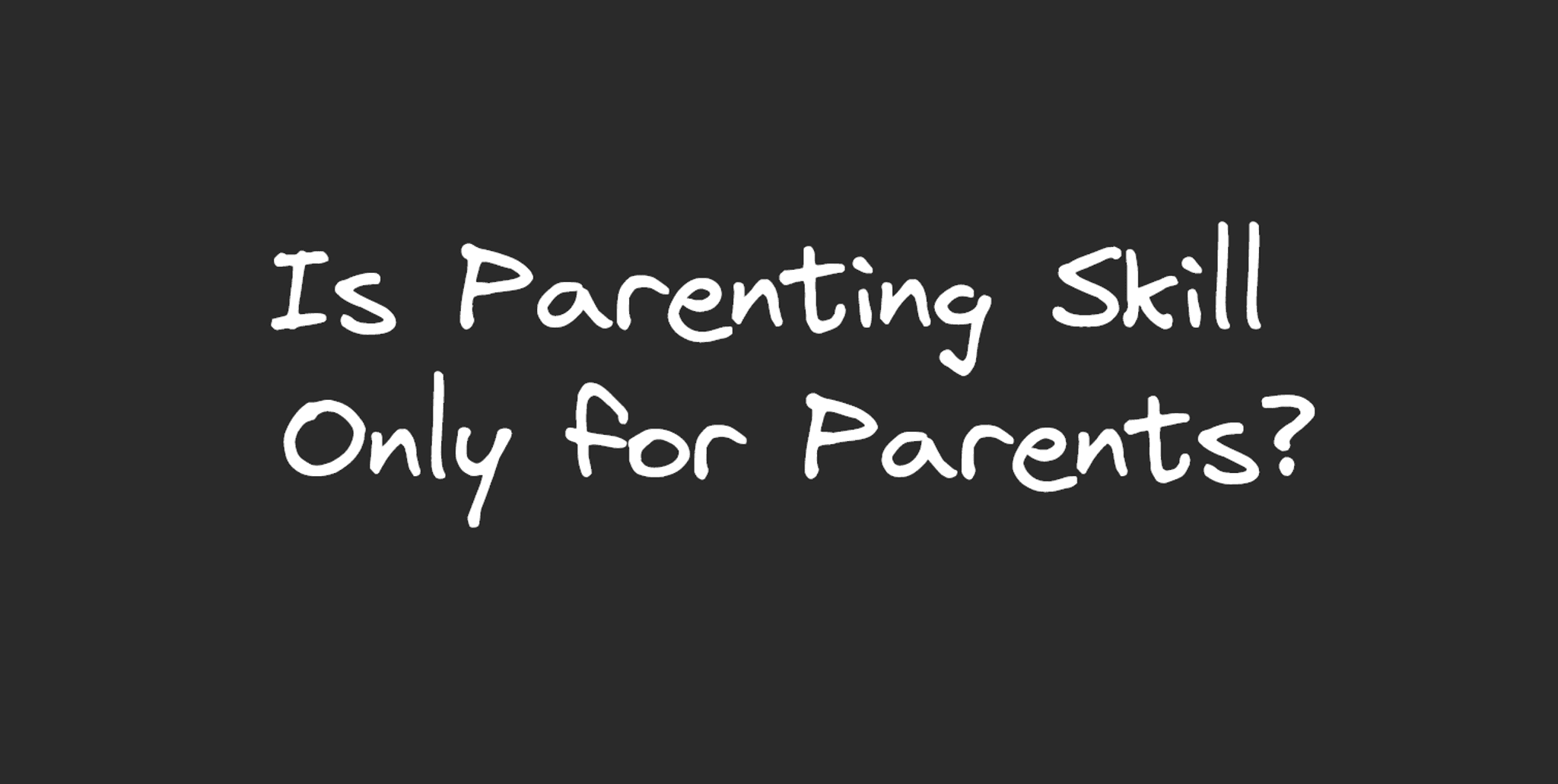Is Parenting Skill Only for Parents?

Table of Contents
Note: I am not a psychologist nor I am an expert in psychology. Do not take what I wrote for granted. If you need second opinions, please consult a mental health expert and do not self-diagnose.
Hello there! Hope you are doing well. This post is going to be rather short, mostly to just dump my thoughts. So, currently, I’m reading this book called “Parent-things: things that are missing from parenting” (not an endorsement, by the way).
I told a friend about it and they said that it’s still be a while until they need it (which I assume, they’ll only need it when they are about to become a parent). Perhaps, that makes sense. But, on the other hand, it makes me think, is parenting skill only for parents?
Prelude
Before COVID-19, parents and adult children most of the time went out to work or study, effectively limiting their communication time to be limited to morning and night times. Since COVID-19, people spent more time in their homes and it kinda exposed some internal issues that previously perhaps were “buried”. These kinds of issues are usually the product of dysfunctional family.
In functional families, this is both fortunate and unfortunate since it means less quality time. However, in dysfunctional families, this is perhaps a blessing, because people who spend most of their time at home don’t have to deal with the bullsh*t that would otherwise happen when all people are present at home.
Children who grow up in dysfunctional families usually don’t experience the best childhood. Their days are mostly walking on eggshells and trying to close their ears so they don’t have to listen to the arguments/debates/whatever. Often they are also pulled to the middle of it and they are forced to choose a side. It’s just not a healthy environment for a child to grow up in.
The “child” inside us who longs for a lively childhood is then forced to deal with the adult stuff. Like a plant, something that isn’t given proper care will not be able to grow optimally. We will need to make our “inner child” catch up.
Enter: reparenting
To nurture our inner child, there is this approach called “reparenting”, with the meaning as the following (taken directly from the article).
We tend to be protective and defensive around our childhood experience, but the truth is we have a unique opportunity to heal and consciously choose different behaviors as adults. Regardless of what we have experienced in our past.
This process is called reparenting.
Reparenting is the act of giving yourself what you didn’t receive as a child.
We can have a child without having a child (if that makes sense). That child… is ourselves. By learning about parenting skills, we can do more self-talk and try to understand ourselves better. We can try to understand what we want, deep inside.
Other than that, based on what I read from the book, a lot of parenting skill is based on empathy. Raising a child doesn’t mean giving full attention only to the child — it means sharing love with the entire family equally. I learned that no matter how much attention parents give you if they don’t give an equal amount of attention to each other, then the “family feel” will not just be there. Children are good at imitating, which means if their parents show love to each other, their children can also “imitate” their behavior and develop their behavior properly.
There are also a lot of learnings from parenting skills that I think I could benefit from as a Lead Software Engineer. Like, parents shouldn’t make their children choose sides. This is applicable as well in work. We managers shouldn’t make our direct reports choose sides, because that will just break the team’s chemistry and vibes. Everyone will hold a grudge against each other and the team’s performance will plummet.
Closing words
I think that’s all I could write for now. Hopefully, this post is useful. Take care and see you on the next one!